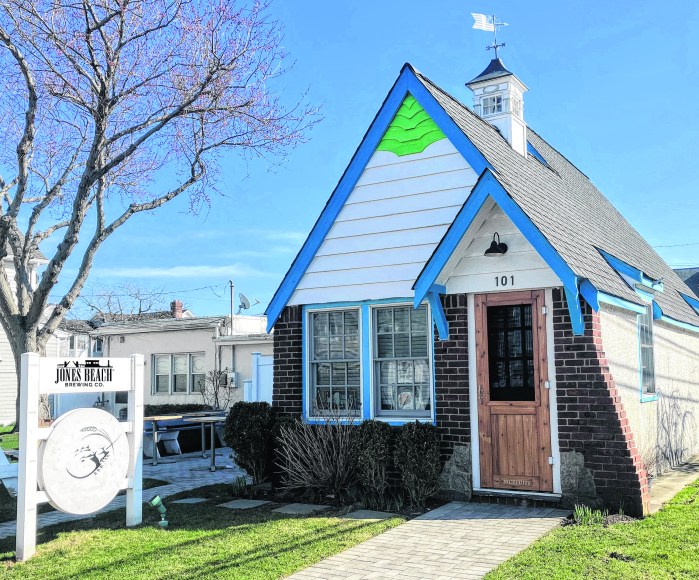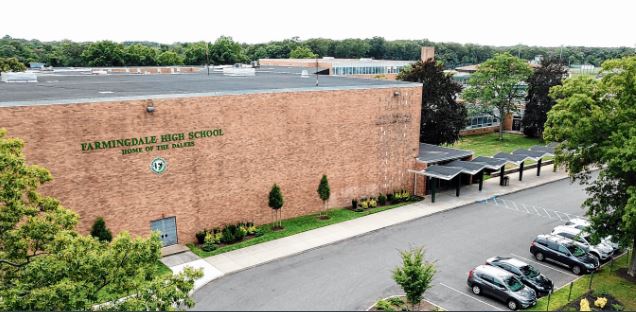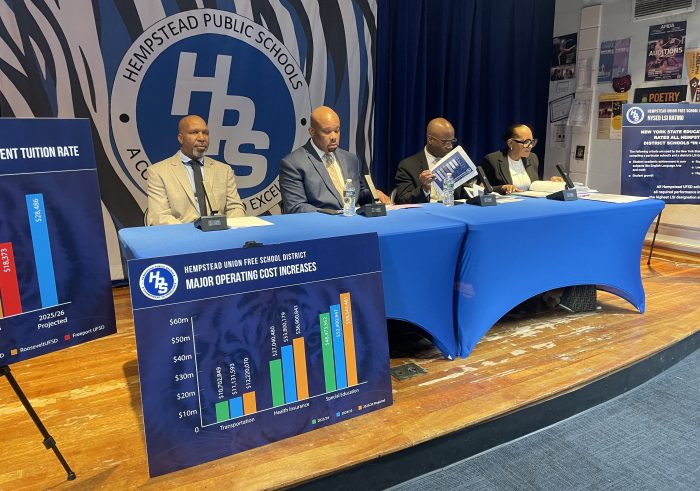As Long Island entered the phased reopening of its economy from the coronavirus shutdown, local businesses took preliminary steps toward a new normal.
But it’s been far from business as usual in July, with changes going beyond the presence of masks, social distancing, and lower density unlike in the days before COVID-19 hit.
“We’re witnessing a gradual return to normalcy,” says Terri Alessi-Miceli, president and CEO of the Hauppauge Industrial Association, “all consistent with the phase-in plan set forth by the state.”
How and what companies return to, however, may be a mix of new and normal, as reopening becomes not simply a return to, but a redefinition and reimagining of, normal.
Even as stores began to reopen, customers often were slower to return and many relied more on delivery for goods from supermarkets and other retailers than before.
Plexiglass barriers between cashiers and customers aren’t likely to go anywhere soon. With restaurants at limited capacity, reservations are recommended. And businesses such as barbershops and salons typically shifted to by-appointment models, rather than relying on crowded waiting rooms.
“Some companies are considering ways to incorporate some degree of telecommuting into their new business models,” Alessi-Miceli adds.
Telecommuting is more common in part because technology is now more widespread. At Habitat for Humanity of Suffolk offices, as the region entered phase two, all office workers were still allowed to work from home. And telemedicine transformed medicine, as virtual visits made house calls more common.
“The use of telehealth exploded during the crisis, especially for the treatment of mental health issues,” says Janine Logan, spokeswoman for the Nassau-Suffolk Hospital Council and the Suburban Hospital Alliance of New York State. “Rules and restrictions around the use of telehealth for all health services were relaxed during the pandemic and are still, for the most part, in place.”
Linda Taylor, CEO of Visiting Nurse Service and Hospice of Suffolk, says her group is using telehealth to conduct more virtual visits, often including family members.
“This benefits our ability to safeguard our patients and staff by minimizing face-to-face contact between home visits and maximizing our ability to monitor patient symptoms and progress,” she says of online visits, including review of medication, side effects, interactions and effectiveness.
Bill Kiley, a Long Island author who wrote a children’s book titled Hoped and Freckles, had lined up visits at Barnes and Noble stores and schools. He instead has been doing virtual visits that are likely to continue for the near future.
“My first online visit was with a school in Yonkers … and it was a delightful experience,” he says. “Next week I’m visiting an online class from a school in Northport.”
Some companies are changing their business model, offering services that may be more in demand during the new normal. WizdomOne Group, a wealth advisory firm and employee benefits company in Islandia, launched “WizdomWorks,” providing office space to those who may not need much, if any, square footage.
Marisa Morgillo, a marketing consultant for WizdomOne Group, says “the ability to work more remotely” is making many people rethink sometimes costly conventional office space.
Through WizdomWorks, she says, “various professionals and entrepreneurs” can work and “share ideas and connections” and space, rather than leasing traditional space.
“WizdomWorks will be offering this philosophy to those who are looking for a fresh atmosphere and start to the ‘new norm,’” Morgillo adds, saying spaces “will be available to lease by startups, entrepreneurs and established professionals.”
Real estate and construction have been returning to their new normal, which may have a different look and feel as brokers rely more on virtual house showings. Habitat for Humanity of Suffolk, meanwhile, isn’t bringing volunteer builders back just yet.
“We have restarted construction with paid staff only,” says Habitat for Humanity of Suffolk CEO Lee Silberman. “We do not anticipate allowing volunteer groups to come out to our worksites until Labor Day.”
Revenue could go down at businesses such as barbershops, restaurants, and others, due to lower volume. Even Habitat for Humanity of Suffolk, for instance, expects to build fewer homes.
“Not having volunteers severely impacts our ability to work on multiple houses at the same time,” Silberman says.
Sign up for Long Island Press’ email newsletters here. Sign up for home delivery of Long Island Press here. Sign up for discounts by becoming a Long Island Press community partner here.

































